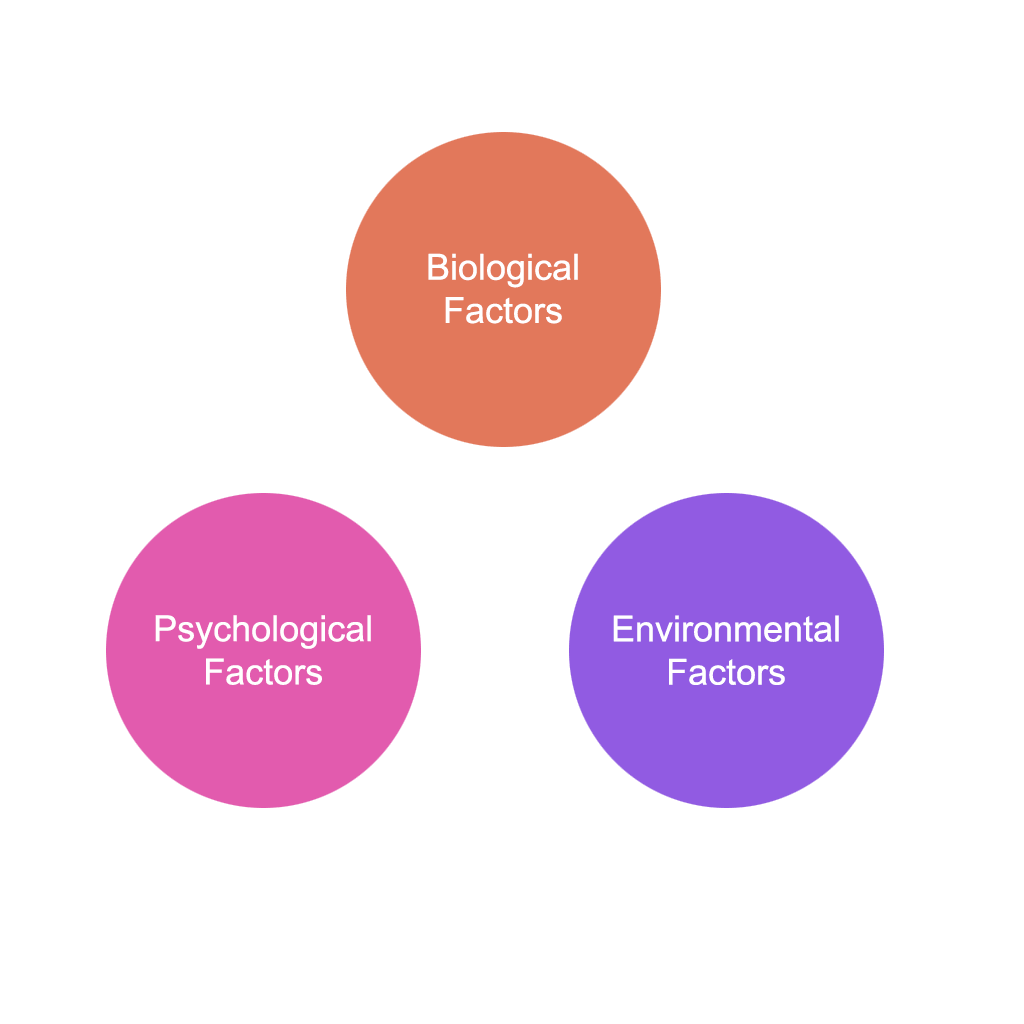List of Key Factors that determinants the Personality.

List of three key factors have been identified for determinants of Personality. Personality Psychologists had huge interest in these.
[wpsm_inline_list] [/wpsm_inline_list]Biological Factors.
These are the physical determinants based on physique and body functioning that shape personality. Some of these factors have been discussed below:
Body build: Body build determines a person’s capacity to do something and how he would react to people who have inferior or superior body structure. We can identify a body build as : (i) Ectomorph, (ii) Endomorph, and (iii) Mesomorph.
Also read | Different types of Behavioral Assessment.
Physical attractiveness: A physically attractive person of any age is more appealing than an ugly person.
Homeostasis: It is important to maintain stability in the body in terms of normal body temperature, blood sugar levels, blood pressure, water balance, etc.
Instability in any of these parameters brings about disequilibrium and homeostasis disturbance takes place.
If a person’s physical parameters mentioned above are in balance, we find the person to be relaxed and psychologically stable.
Also read | Behavioral Assessment.
Psychological Factors.
There are many psychological factors which determine personality development, of which the important ones are discussed here.
Intellectual Determinants: The intellectual development of a person affects his personality. Intellectual people are able to adjust better in various life situations. Other people also have a positive judgement of intellectual people which is based on their intellectual achievements.
Emotional Determinants: Emotions are a very important determinant of personality. Emotional factors have a huge bearing on a person’s personal and social adjustment.
There are many aspects of emotions like dominant emotions, emotional balance, emotional deprivation, excessive love and affection, emotional expressions, emotional catharsis and emotional stress which affect the development of personality directly and indirectly.
Also read | Testing and Measurement Concepts of Assessment.
Excessive Love and Affection: This tends to affect children adversely.
Self-disclosure: For good mental health and a healthy personality, self-disclosure is important and is considered favorable with people.
People who express their emotional stress in the form of anxiety, frustration, jealousy and envy adjust better personally and socially.
Aspiration and Achievements: Aspiration means goals, desire for more than what people have in their present. it is ego that makes people want to achieve more or have more than they possess.
Those longings or desires of people that have their roots in their ego influence their behaviour and personality.
Also read | Allport and Cattell approaches to classify personality traits.
Achievements: Achievements are viewed in comparison with others in an objective manner or with one’s level of aspiration in a subjective manner. People may feel that their achievements are a success or a failure, affecting their self-concept accordingly.
Goal Setting: There is ample proof to substantiate the fact that success makes a person more realistic towards setting future goals in, life.
He develops an understanding of his capacity and does not make unrealistic demands of himself.
Well-adjusted, intelligent people have such a stable behaviour pattern than those who find adjustment in life difficult.
Environmental Factors.
Some environmental factors which affect the development of personality. Four important set of factors are explained below:
Also read | Cattell’s trait theory of personality.
Social Acceptance: This is an important factor influencing personality development.
We all live in a social group where we expect approval and appreciation of the members of the group.
When a person’s performance behaviour and role play is according to group expectations, he gets the approval of the group members. This is an important criteria for self-evaluation by an individual and it influences his self-concept to a large extent.
Social Deprivation: This factor has a huge impact on personality development. Those people who do not get the opportunities to experience social contacts including, love and affection are called socially deprived.
Educational Factors: Educational factors are very important for the development of personality.
Also read | Main Tenets of Maslow’s Theory of Personality.
Teachers, school, college and how the child’s experiences are with them, how he regards them, how his attitude is towards school and college, teachers and fellow students, and towards the importance of studies affect his personality a lot.
Students enjoy their time at school if they have a favorable outlook towards academics and enjoy warm, cordial relationships with their teachers and peer group. This brings confidence in them and raises their self-esteem.
Family Determinants: At all stages of life, family plays a major role in influencing the personality of individuals, both directly and indirectly.
The different child-training methods that are used to shape a child’s personality, and how the members communicate their interest, attitude and values directly influence personality.
Also read | Salient Features of Maslow’s Theory of Personality.
If parents show too much strictness, children become dependent Upon external controls and even become impulsive when they are away from parents’ influence. Children follow their parents and their personality traits become similar to their parents’ through imitation.


